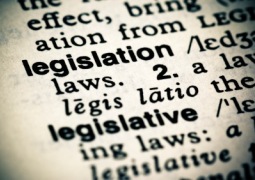
The Select Committee on Security and Justice today deliberated on the Electoral Matters Amendment Bill, indicating it will convene again tomorrow to possibly finalise the Bill.
Committee Chairperson Shahidabibi Shaikh said that in tomorrow’s meeting the committee plans to take the process forward, looking into adopting the Bill and the committee’s report on it.
The Bill seeks to amend the Political Party Funding Act of 2018. Among its key objectives is to align various pieces of legislation with the Electoral Amendment Act of 2023, which enables independent candidates to contest elections for seats in the National Assembly and the provincial legislatures.
The Bill further seeks to regulate the private and public funding of independent candidates and independent representatives. According to the Bill, a political party, independent representative, or independent candidate must disclose all donations they received to the Electoral Commission of South Africa (IEC). A juristic person or entity that donates to a political party, independent representative or independent candidate above the threshold prescribed must also disclose this donation to the IEC.
The Bill also makes it an offence to make donations to gain political influence and favour punishable with a fine, imprisonment or both. The Bill also makes it an offence to donate to a political party, a member of a political party, an independent candidate, or an independent representative in the expectation that the party, member, representative or candidate concerned will influence the awarding of a tender, licence, approval, consent or permission, or the relaxation of a condition or restriction.
In addition, the Bill allows independent representatives to receive funds from the Multi-Party Democracy Fund (MPDF), which is administered by the IEC. The fund raises funds from the private sector and distributes them to political parties represented in elections. Independent candidates will now be included in the MPDF’s list of accepted beneficiaries.
The Bill prevents the IEC from accepting donations for the MPDF if there is reason to believe the donation comprises proceeds flowing from a crime. The IEC can also suspend the payment of money to a represented political party, independent political party, or independent representative if it is satisfied on reasonable grounds that the represented political party or independent representative has failed to comply with the Act.
It also provides for an amendment to the powers of the President in order to make regulations on certain matters and to amend Schedule 2, which relates to the formula to be used in the allocation of money in the funds on a proportional and equitable basis.
The Democratic Alliance (DA) and the Inkatha Freedom Party (IFP) raised objections to the Bill today, claiming that it is unfair and will only advantage the African National Congress (ANC). Mr Ricus Badenhorst from the DA said the amendments were a rushed process because of the national elections looming. He claimed that the Bill will result in the ANC receiving an additional R15 million, while smaller parties’ funding will be almost halved, he said. He added that if the Bill is adopted, it will be unconstitutional. Committee Member Mr Nhlanhla Hadebe said the IFP also opposes to the amendment, for similar reasons to the DA.
Committee Member Mr China Dodovo disagreed strongly with this argument. He said the funding model proposed in the amendments is appropriate because of its dual nature. “It caters for equitable funding, as well as proportional funding,” he said. “We are satisfied that under the circumstances, this is what our country needs.” He had concerns, however, that, eight weeks away from the elections, the Bill has not been finalised, due to a ruling for the Constitutional Court.
Ms Shaikh said the committee will reconvene tomorrow to take the process forward.
Rajaa Azzakani
19 March 2024

